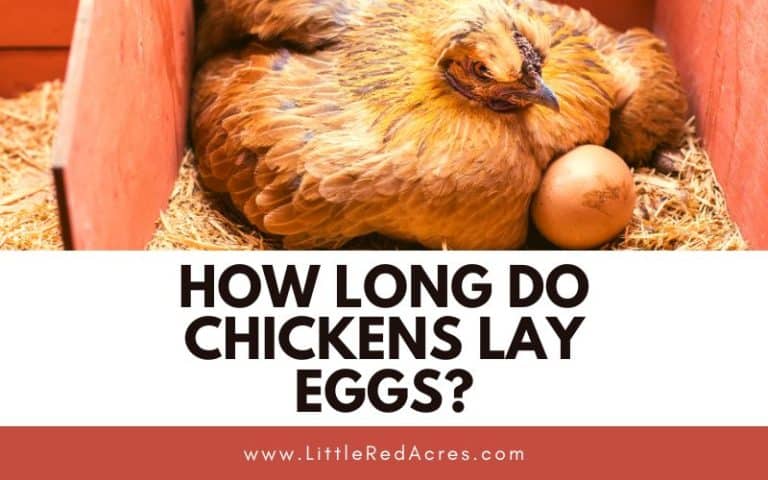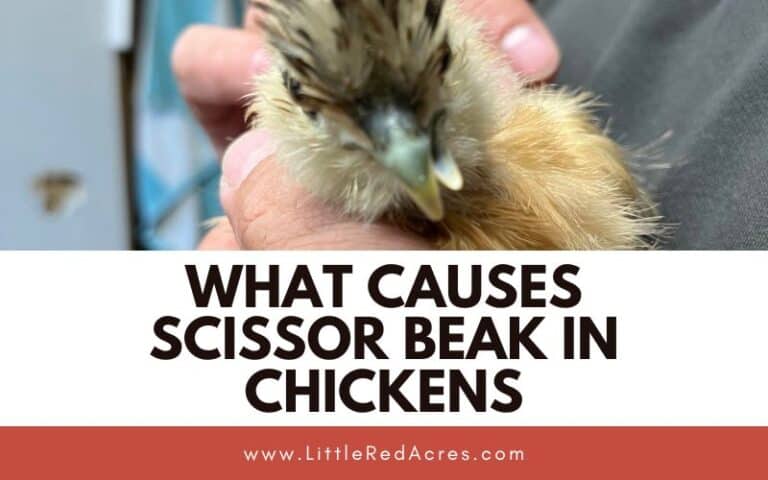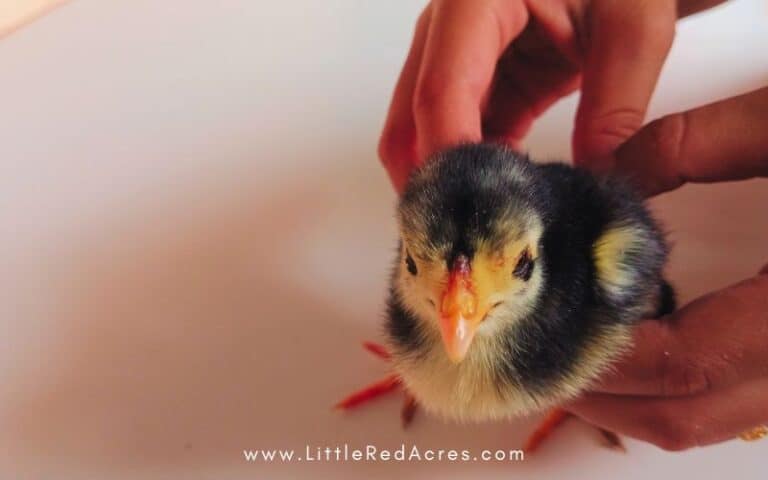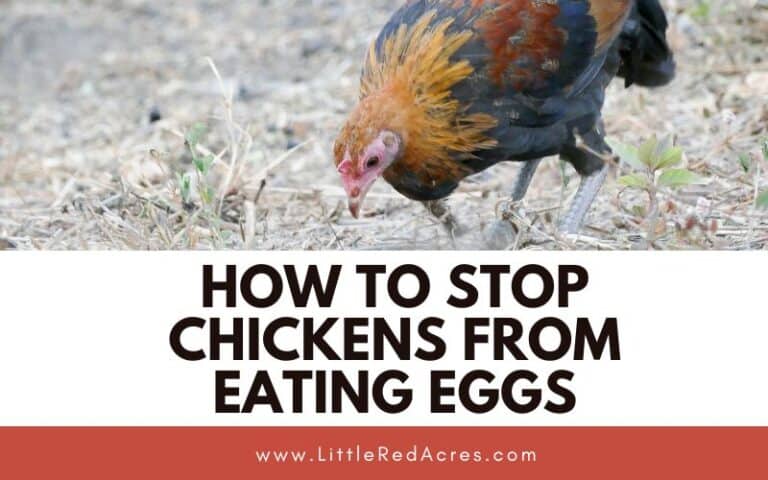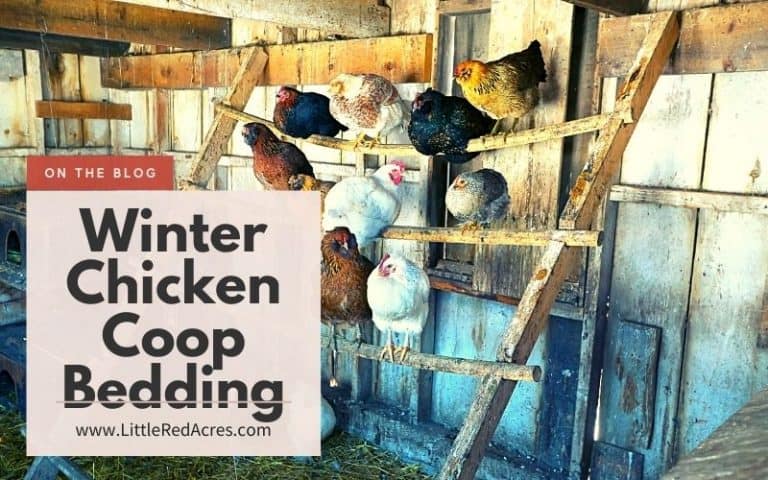Naturally Hatching Chicken Eggs
When it comes to backyard chickens, naturally chicken hatching eggs is an incredibly rewarding experience. It's easy to do when you let nature more or less take care of everything. It's a fascinating part of nature that tells us so much about the incredible life cycle of animals.
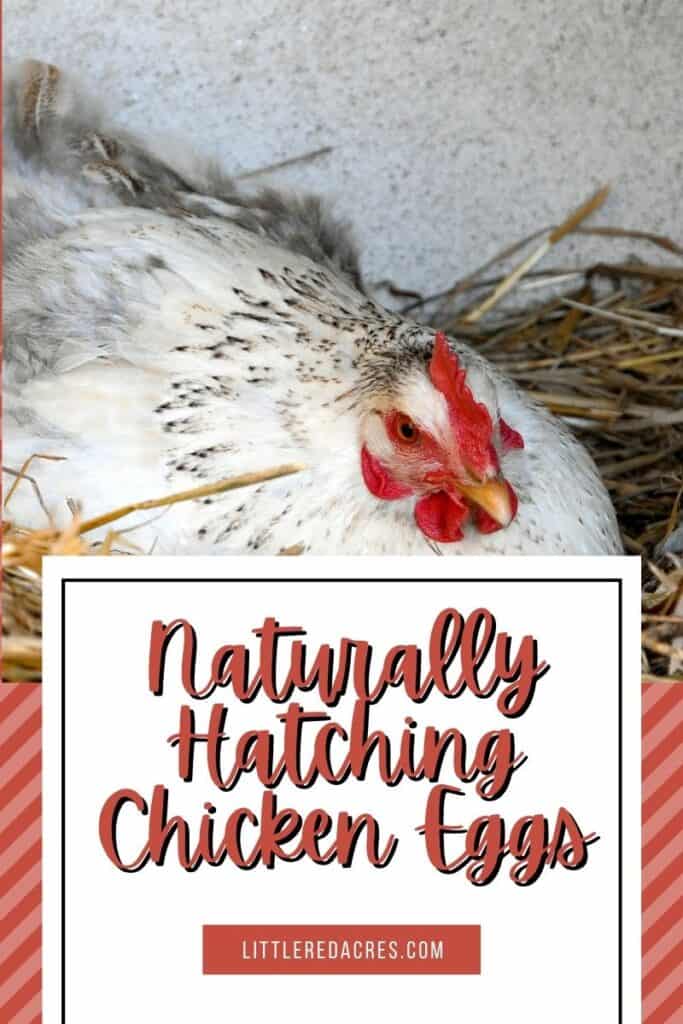
This post may contain affiliate links, see my disclosure policy for more information.
Naturally Hatching Chicken Eggs
First, not all chickens are going to sit on eggs. And there are some that excel at sitting on and hatching eggs and caring for chicks.
Brahma – brilliant mothers and a big plus is their size, place for up to 20 eggs! The bantam Brahma is also amazing if you are looking for a small coop bird.
Silkie – are brilliant mothers but do not have that much space, they are small birds which makes them good for small coops.
Useful tips and tricks to help ensure successful hatching. So, if you've been thinking about hatching eggs, this is the perfect place to start!
Get updates & freebies delivered to your inbox!
When Hens Want to Natural Hatch Eggs
If you have never had a hen go broody, you might be concerned about her behavior. Sitting in the nesting box all day, she'll get a bit nippy with you and possibly other hens. If you want her to hatch eggs for you, this is the time you want to get some eggs under her!
Of course, you need to make sure you are getting fertile eggs. Remember, you can get eggs without a rooster, but not fertilized eggs.
How many you put under her will depend on her size. She needs to be able to completely cover them with her body.
*We have silkies, bantam Brahmas, and Standard Brahmas, broody hens are annoying with these breeds so I have never had to wait for a hen to go broody.*
Moving to a Separate Coop
You should move the mother hen and her eggs to a separate coop and nesting area before the chicks are due to hatch. There are a couple of reasons for this.
- safer for momma hen – other hens won't pick on her or try to steal her eggs
- safer for chicks – once the chicks hatch having them all in a separate area is safer for the chicks to explore without risking a hen or rooster attacking them. Momma hen will do her very best to protect them.
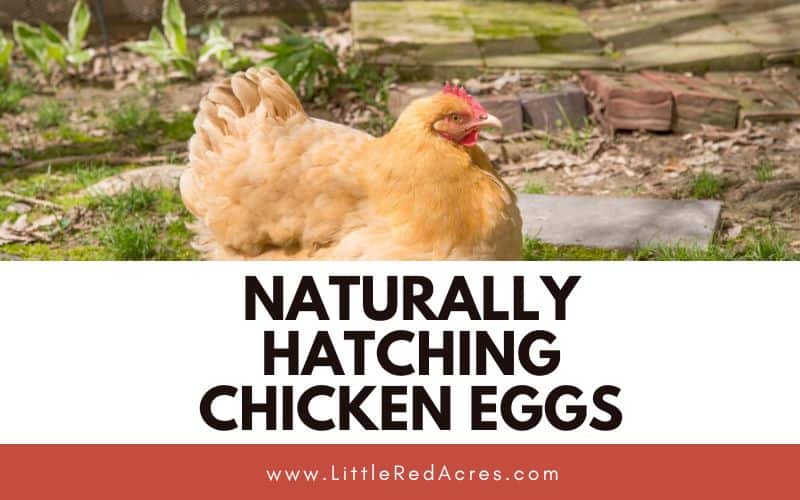
Waiting for Eggs to Hatch
Once momma hen and her eggs are in a safe place, you just need to sit back and wait. Make sure to provide momma with fresh water and food. I like to give chick starter closer to day 21 so the chicks have food ready.
Turning Eggs – keep your hands away, she'll bite you protecting the eggs, and she'll turn them herself
Humidity – don't worry about it. Chickens know what they are doing.
Day 21 – You might not see chicks on day 21. They might take a day longer, or they might hatch early. She is going to hide those little chicks from you.
If you have a successful hatch, and you allow her to raise her chicks, you'll notice a huge difference in these chicks versus those raised in a brooder. They are chickens from day one and learn to chicken and forage from their mother.
If you are free-ranging your chickens, you might notice that a hen has gone off. She may have found a space to hatch eggs on her own. You might feel it is safer to move her to a safe, separate area.
Raccoons have been known to leave a hen and her eggs until right before the eggs hatch. One, I hate to see an animal harmed when you could provide a safe place for them. Two, I think it would break my heart to lose babies like that.


